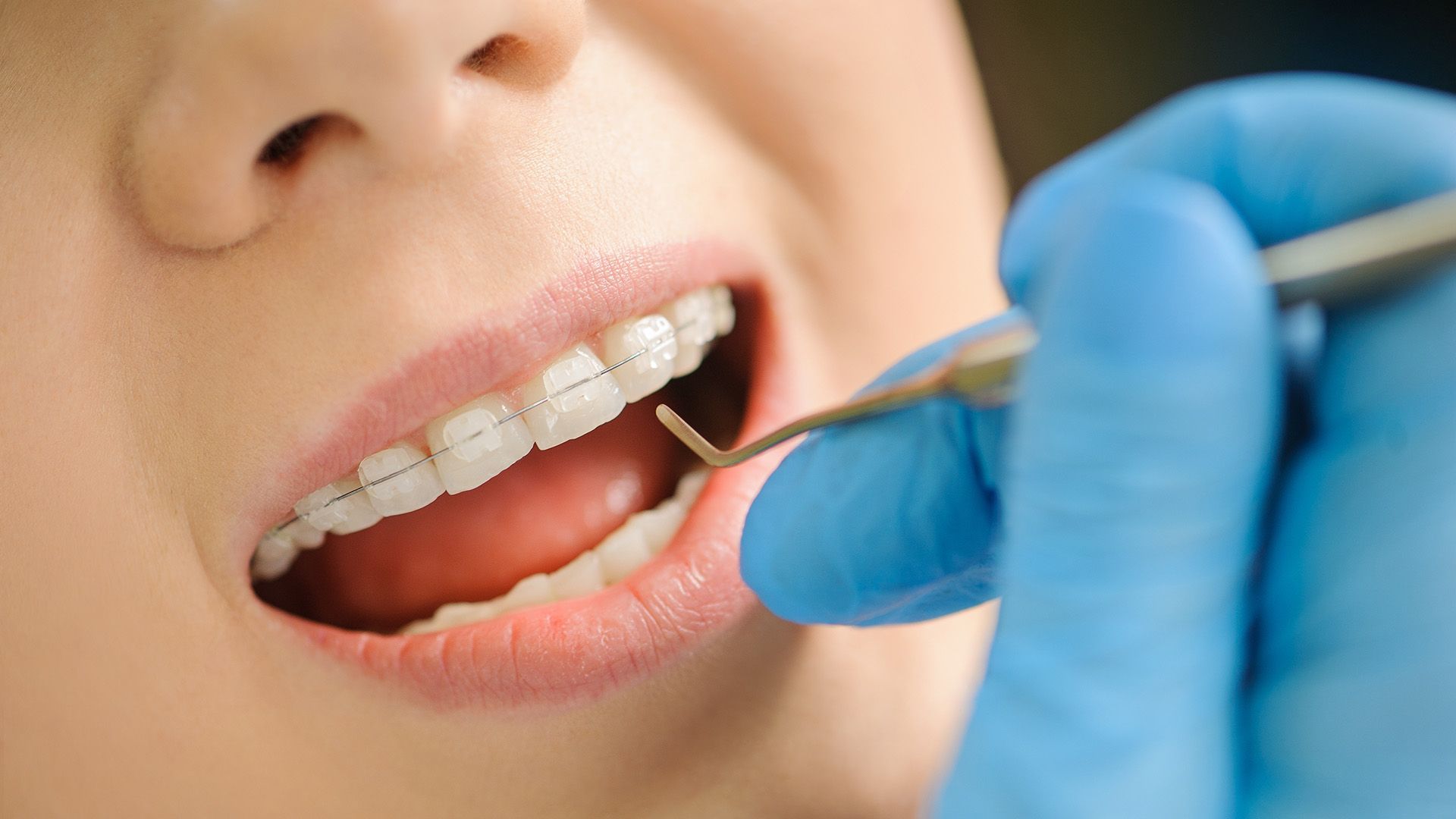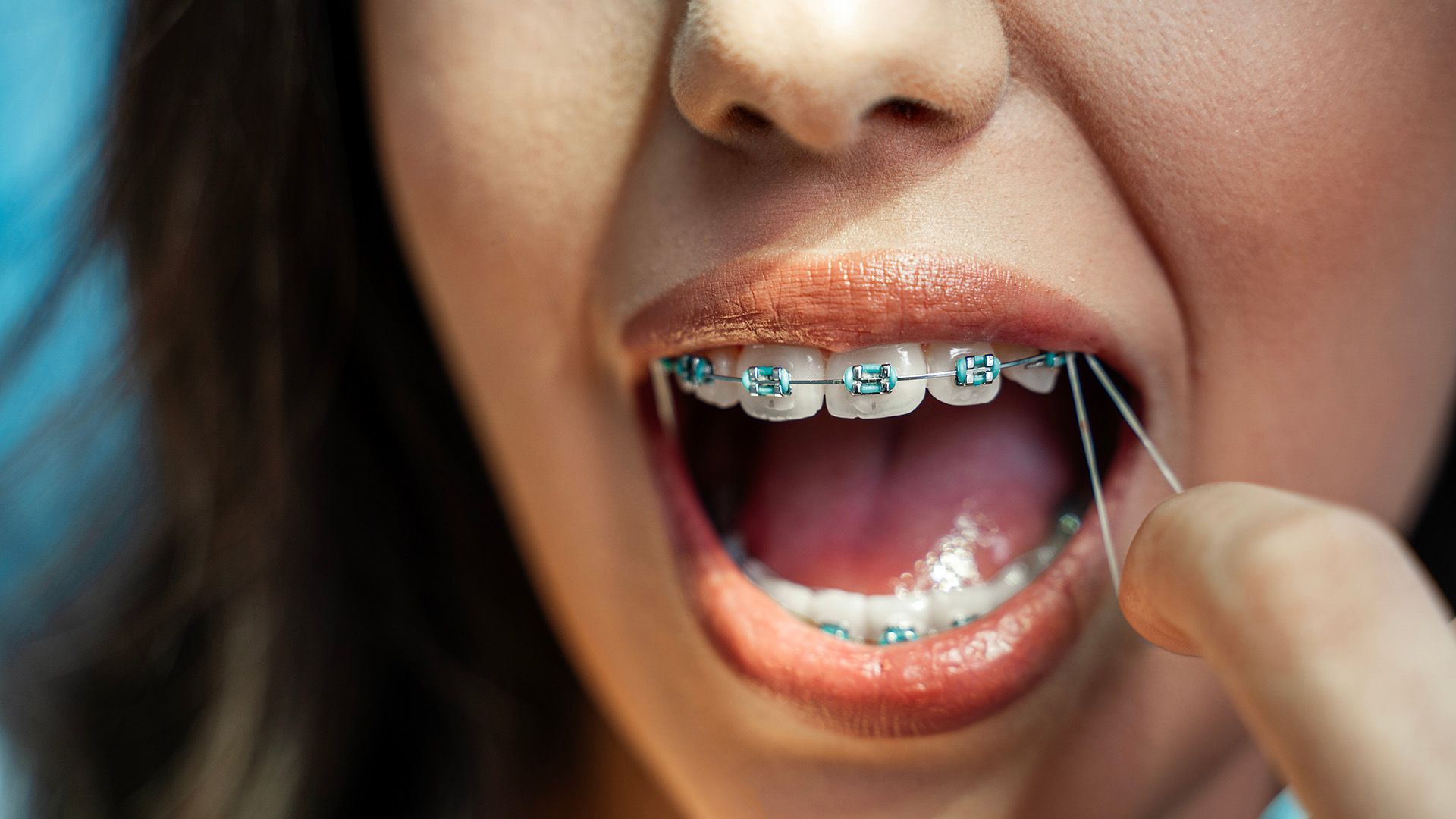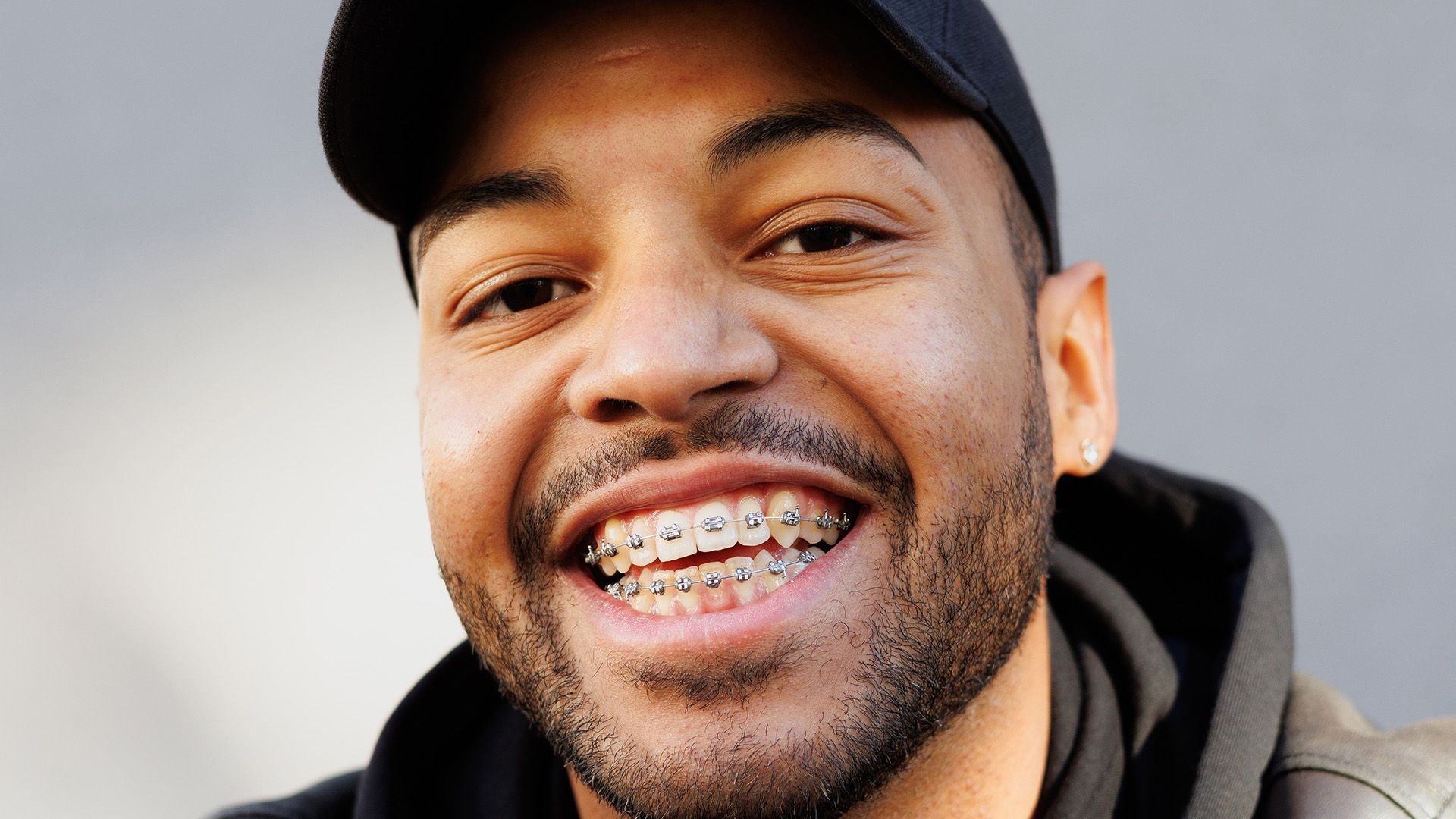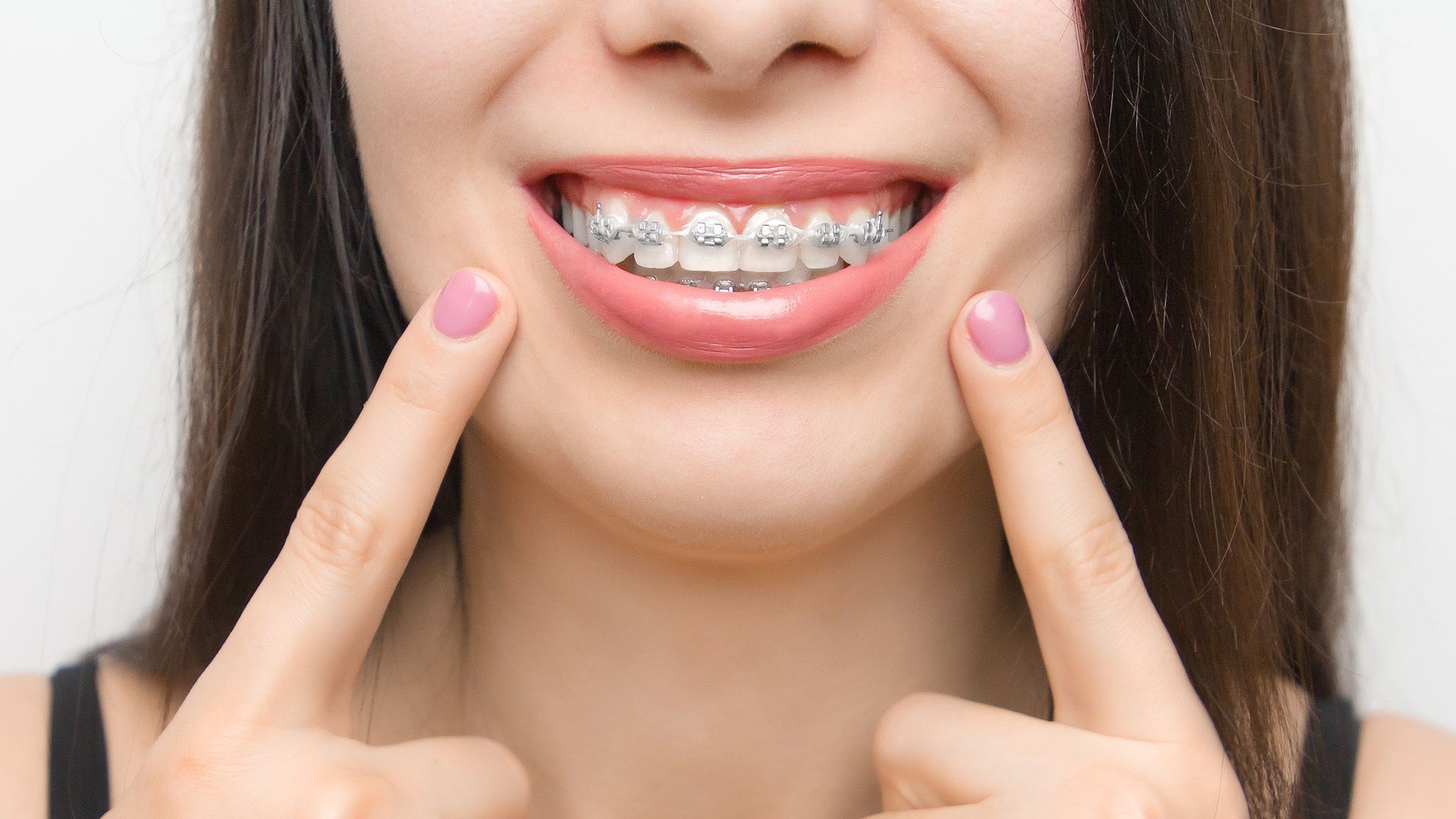Does it Hurt to Get Your Braces Off?
Getting your braces off is an exciting milestone in your orthodontic journey. But it's natural to wonder, does it hurt to get your braces off? The process of braces removal is typically painless, although you may experience some discomfort or sensitivity.
In this article, we'll discuss what to expect when getting your braces removed, how to prepare for the brace removal, and how to take care of your teeth after braces. We'll also address the common question of whether it's possible to get braces off early. At Baptiste Orthodontics, we understand the importance of a comfortable and seamless brace removal process, and we're here to guide you every step of the way.

What to Expect When Getting Your Braces Removed
Getting your braces removed signifies the end of a long process and the beginning of a beautiful, confident smile. If you're wondering what to expect when it's time to have your braces removed, here's a breakdown of the process, the time it takes, signs that indicate your braces are coming off soon, and pain relief options.
The process of brace removal is relatively straightforward. Your orthodontist will carefully remove the brackets and wires from your teeth using specialized tools. This process requires precision and patience to ensure that your teeth are not damaged during the removal. After the braces are removed, your orthodontist will thoroughly clean your teeth and may take impressions for retainers.
The duration of the braces removal process varies from person to person. On average, it takes about an hour to remove braces. However, this can vary depending on the complexity of your case and the condition of your teeth. Your orthodontist will be able to give you a more accurate estimate based on your specific situation.
There are several signs that indicate your braces are coming off soon. These include the alignment of your teeth, the stability of your bite, and the completion of your treatment plan. Your orthodontist will closely monitor your progress throughout your treatment and will let you know when it's time to schedule your brace removal appointment.
Some patients may experience discomfort or sensitivity during the braces removal process. However, the actual removal of the braces is typically painless. If you do experience any discomfort, your orthodontist may recommend over-the-counter pain relief options, such as ibuprofen or acetaminophen. It's important to follow your orthodontist's instructions and avoid self-medication.
Preparing for the Removal of Braces
As your orthodontic treatment comes to an end, you may be wondering what to expect when getting your braces removed. While the process itself is painless, it is important to know how to take care of your teeth after the braces are removed, how to clean off any remaining cement, and the significance of wearing a retainer.
Once your braces are removed, your orthodontist will provide you with instructions on how to maintain good oral hygiene. It is crucial to follow these guidelines to ensure the health and appearance of your teeth. You may be advised to brush and floss more frequently or use specific dental tools to clean hard-to-reach areas.
After the braces are removed, there may be some residual cement left on your teeth. It is essential to clean this off to prevent any potential damage. Your orthodontist will recommend the best method for removing the cement, which may involve using a dental scaler or a special adhesive removal solution. It is important to avoid using any sharp or abrasive tools that could harm your teeth.
One of the key aspects of post-orthodontic treatment is wearing a retainer. Your orthodontist will create a custom retainer to help maintain the new position of your teeth. The retainer will be specifically designed for your mouth and may be removable or fixed. Wearing your retainer as instructed is crucial to prevent your teeth from shifting back to their original positions. Depending on your orthodontist's recommendation, you may need to wear your retainer full-time initially and then gradually reduce the duration over time.
Taking Care of Your Teeth After Removing Braces
After months or even years of wearing braces, the day finally arrives when you get them removed. Congratulations on achieving your dream smile! However, it's important to remember that the journey doesn't end here. Taking care of your teeth after removing braces is crucial to maintain the results you've worked so hard for.
One of the first things to focus on is your brushing and flossing techniques. During your orthodontic treatment, you may have become accustomed to using special tools like interdental brushes or floss threaders. Now that you no longer have braces, you can switch back to a regular toothbrush and floss. However, it's essential to be diligent in your oral hygiene routine. Brush your teeth at least twice a day for two minutes each time, making sure to reach all surfaces. Flossing should be done at least once a day, gently sliding the floss between your teeth and along the gumline.
As you adjust to life without braces, there may be some common issues to watch out for. Your teeth and gums might feel sensitive for a few days, and you may experience minor discomfort or soreness. This is normal and should subside. If you notice any persistent pain or unusual changes, it's important to contact your orthodontist for guidance. Additionally, pay attention to any shifting of your teeth. While retainers will help maintain the alignment, it's still possible for teeth to shift slightly over time. If you notice significant changes, consult with your orthodontist as soon as possible.
Regular check-ups with your orthodontist are vital even after your braces are removed. These visits allow your orthodontist to monitor the progress of your teeth and ensure they remain in their new positions. Your orthodontist can also provide valuable guidance on retainer usage and answer any questions or concerns you may have. By attending these check-ups, you can maintain the best possible outcome from your orthodontic treatment.
Can I Get My Braces Off Early?
Getting braces off is an exciting milestone in your orthodontic journey. However, it's important to consider certain factors before deciding to get your braces off early. Here are some key things to keep in mind:
1. Treatment Progress: The primary factor to consider is the progress of your orthodontic treatment. Your orthodontist will evaluate your teeth alignment, bite, and overall oral health to determine if it's the right time for braces removal. Removing braces too early may result in incomplete treatment, leading to potential oral health issues or the need for retreatment in the future.
2. Stability of Results: Braces work by gradually shifting your teeth into their proper positions. While it may be tempting to remove them early, it's crucial to ensure that the teeth have had enough time to stabilize in their new positions. Premature removal can cause the teeth to shift back, undoing all the progress made during your treatment.
3. Potential Risks: Removing braces early can pose certain risks and disadvantages. Your teeth may not be fully aligned, which can affect your bite, speech, and overall aesthetics. Additionally, prematurely removing braces can result in teeth overcrowding or spacing issues.
4. Alternative Options: If you're eager to complete your orthodontic treatment sooner, discuss alternative options with your orthodontist. They may suggest methods like accelerated orthodontics or the use of clear aligners to expedite the treatment process without compromising the final results.
Ultimately, the decision to get your braces off early should be made in consultation with your orthodontist. They have the expertise to evaluate your specific case and provide guidance based on your unique needs and treatment goals. Prioritizing the long-term health and stability of your smile is essential to achieve a beautiful and lasting result.













